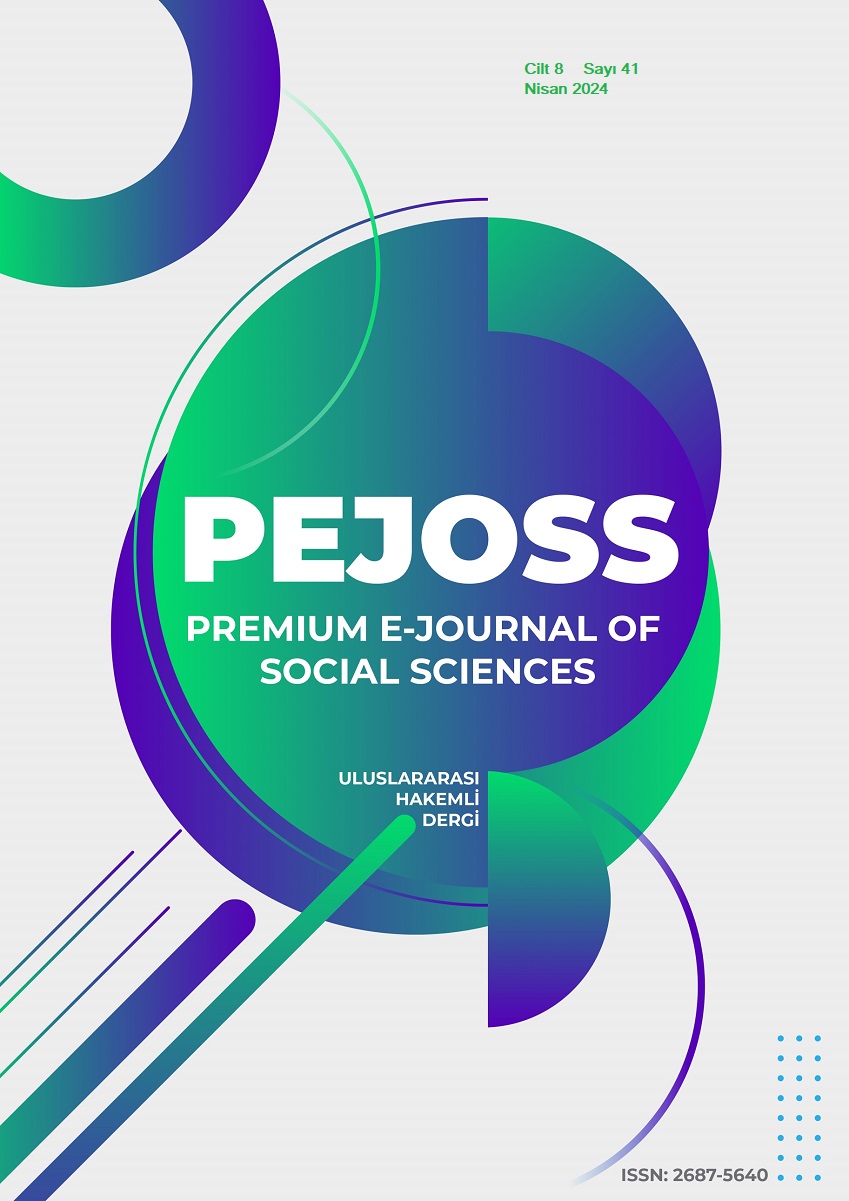The Place and Importance of Households in Economic and Social Systems
DOI:
https://doi.org/10.5281/zenodo.11117332Keywords:
Social Capital, Brain Drain, Democratic Impact, Household, Growth, PovertyAbstract
The economy is a basic building block for both the individual and the society. Civilization has made progress thanks to economic power. Both Mesopotamian, Egyptian and Greek cultures owe their existence to their economic power as the basis of civilization. On the other hand a every age, in order to become an economic power, the household must first reach a certain level of development in terms of rights and freedoms. As a matter of fact, in Mesopotamia this situation was framed by the laws of Hammurabi. Like every civilization, the Egyptian civilization adopted a management approach and created its administrative mechanism accordingly. In Greek culture, this was discussed within the framework of democracy. The common feature of these three civilizations was that they guaranteed the interests of individuals and society with laws and a certain system. On the other hand, the essence of any system is to guarantee prosperity and security in society, on the one hand, and to protect the freedom of the economy and individuals, on the other hand. The welfare state is dependent on the market economy, as economic value creation forms the financing basis of the welfare state in the form of tax revenues and social security contributions. Today, the market economy depends on individuals' willingness to take risks because it increases society's ability to innovate. The welfare state also has the task of mitigating certain life risks and thus encouraging market economy behavior of society. In this study, what the state should do to maintain the level of welfare and development while controlling the interaction and exchange between companies and households is examined.
Downloads
References
Alpago, H. (2022a). The Reflections of Economic Theories on Social Welfare and Social Peace. Barış Araştırmaları Ve Çatışma Çözümleri Dergisi, 10(2), 253-274.
Alpago, H. (2022b). The Importance Of Outsourcıng In The Production Process In The Globalizing World. İmgelem, 6(11), 539-550. https://doi.org/10.53791/imgelem.1120505
Alpago, H., & Oduncu Alpago, D. (2021). Karşılaştırmalı Bir Analizle Göç Ve Entegrasyon: Gurbetçiler ve Suriyeli Mülteciler Örneği. Bilgi Ekonomisi Ve Yönetimi Dergisi, 16(1), 95-115.
Eurostat, (2024), https://ec.europa.eu/eurostat
Forbes, (2024), https://www.forbes.com/
OXFAM, (2024), https://www.oxfam.org/en
ORF, Nahrichten, 12.03.2024
Kılınç, M. & Alpago, H. (2021). Examıning The Economic and Political Dimensions of The Eastern Mediterranean Problem from a Macroeconomic Perspective within the Framework Of Neo-Realism and Neo-Liberal. Florya Chronicles of Political Economy, 7(2), 127-146.
Liberté, égalité, fraternité, (2024), https://www.youtube.com/watch?v=-iqKk2eqfu4
The World Factbook, (2024), https://www.cia.gov/the-world-factbook/
TUIK, (2024), https://www.tuik.gov.tr/
Zeit, (2024), https://www.zeit.de/index
Downloads
Published
How to Cite
Issue
Section
License
Copyright (c) 2024 Premium e-Journal of Social Science (PEJOSS)

This work is licensed under a Creative Commons Attribution 4.0 International License.


